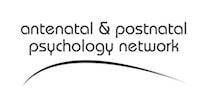|
The analytics are in. The 3800+ followers of the Antenatal & Postnatal Psychology Network Facebook Page have voted for their favourite parenting articles by responding to our posts. To find out which articles were the most popular in 2017, we analysed readers' reactions and shares, and evaluated the total numbers of people our posts reached. Posts on our Facebook page are judiciously selected by Perinatal Clinical Psychologist, Dr Renée Miller. Posts cover topics that are of interest and of benefit to expectant and new parents, and to parents facing the common challenges associated with toddlers and young children. Out of the many topics listed below, find out which articles ranked in the top 7.
Topics our Facebook Page covers
So, out of all these topics, which articles made the top 7? At Number 7: The Silent Tragedy Affecting Today's Children At Number 6: 11 Things to Say When Kids Cry At Number 5: Bringing Home Another Baby: Six months in, a mom reflects on double duty parenting At Number 4: Bereaved Mother's Day: Acknowledging mums who have lost babies At Number 3: How a Parent's Affection Shapes a Child's Happiness for Life At Number 2: Why is Mommy Tired? Drum roll.... At Number 1, the most popular article in 2017: 10 Rules for Visiting a New Mom If you are interested in articles such as these, we would love you to follow our Facebook page, and to share this resource with your friends! May you find contentment and meaning in 2018, The psychologists from the Antenatal & Postnatal Psychology Network |
AuthorPosted by Dr Renée Miller Topics
All
|
|
We acknowledge and pay respects to the Elders and Traditional Owners of the land on which our psychologists practise.


 RSS Feed
RSS Feed

